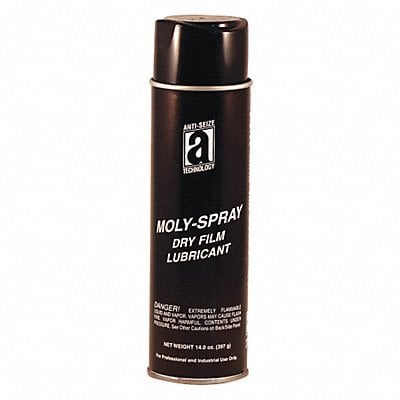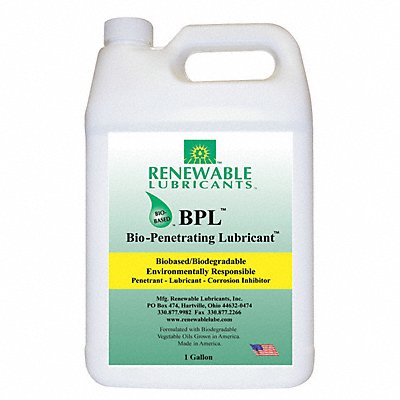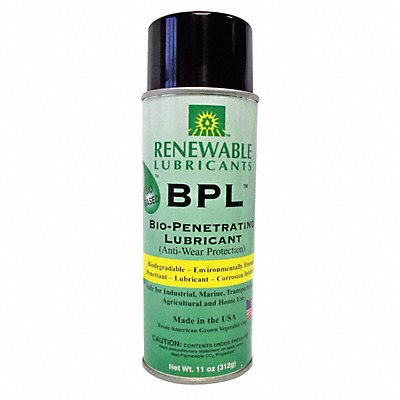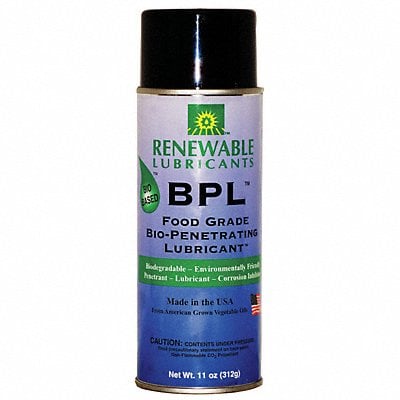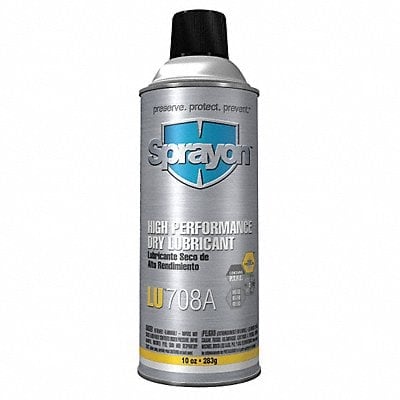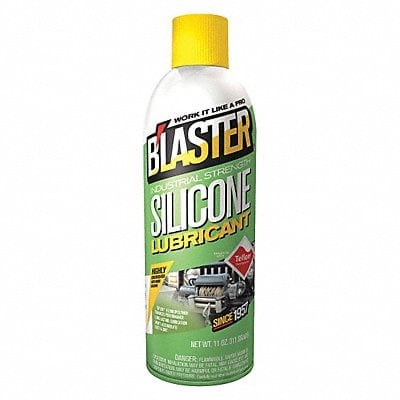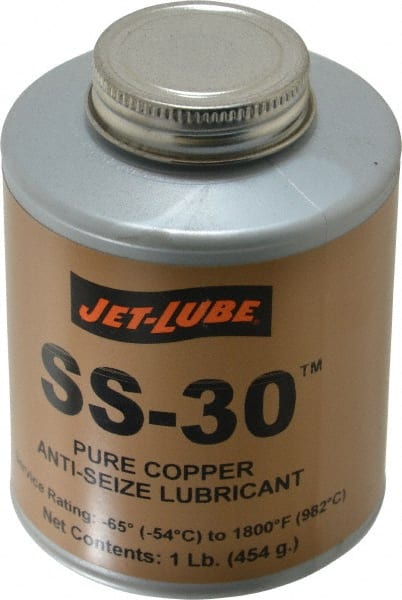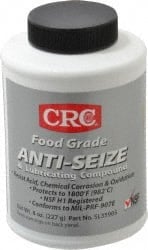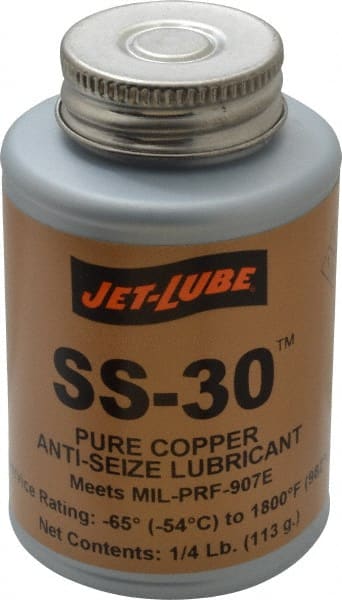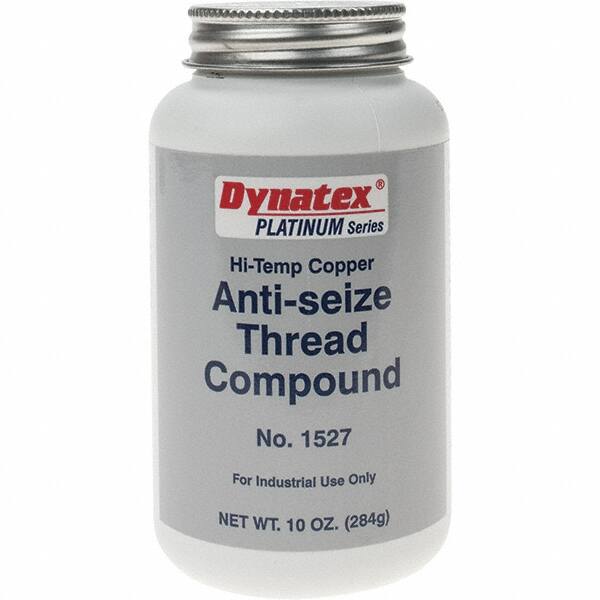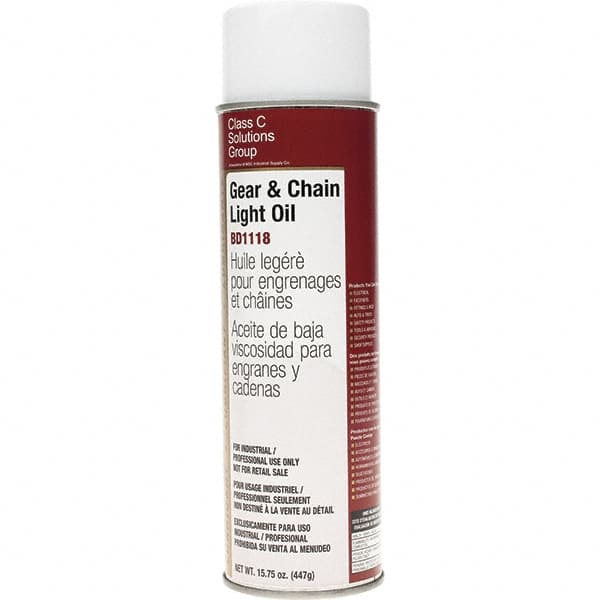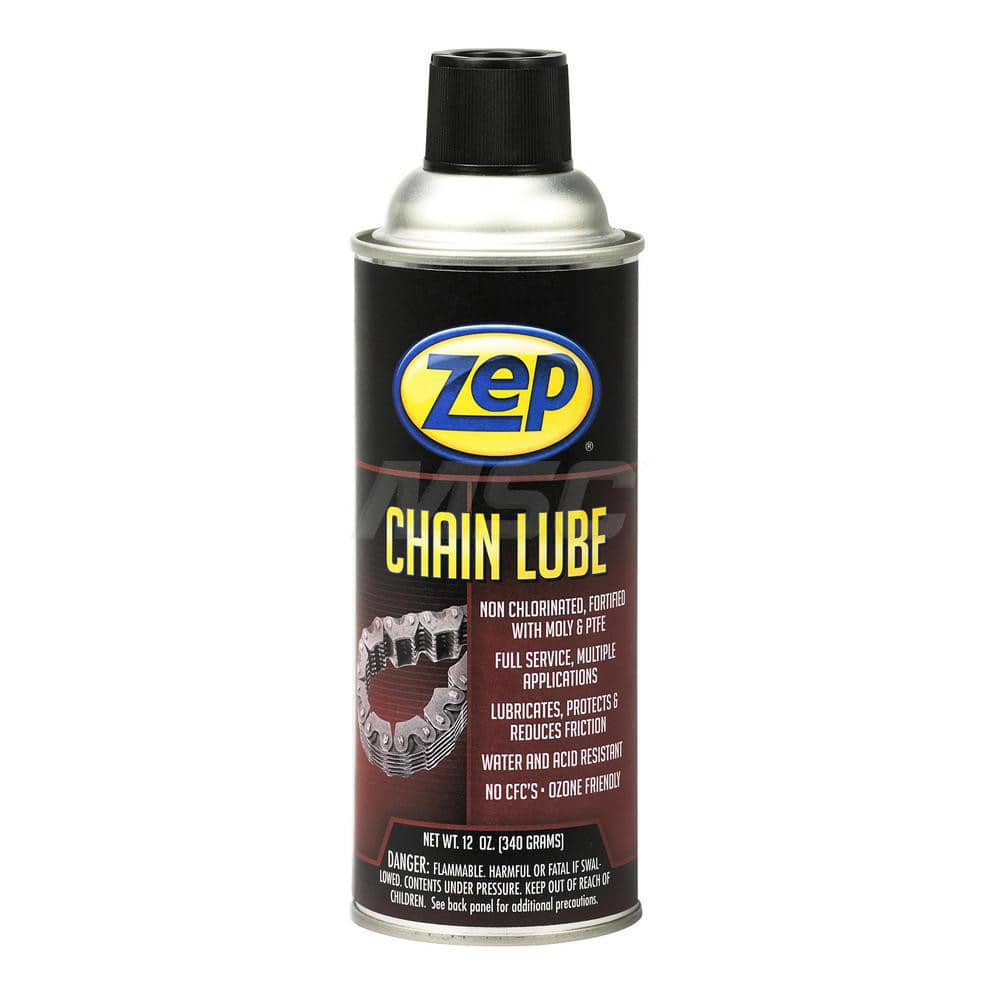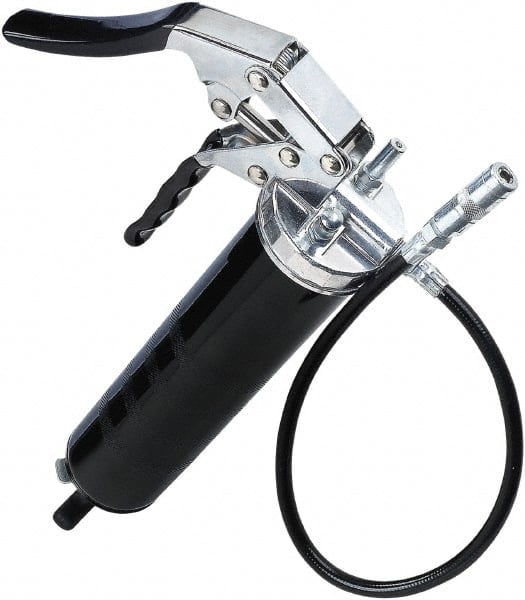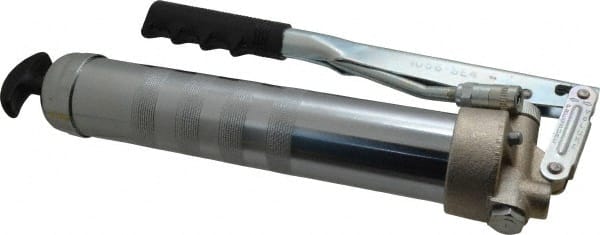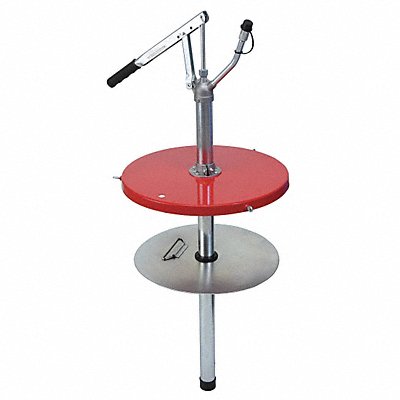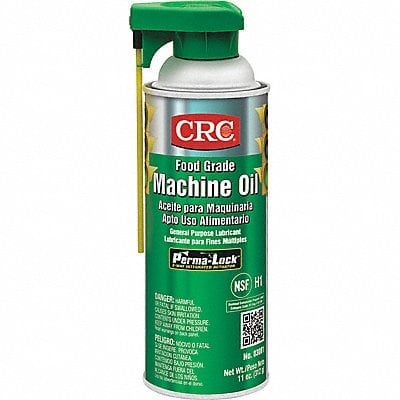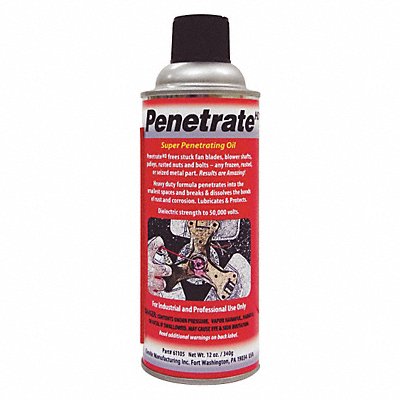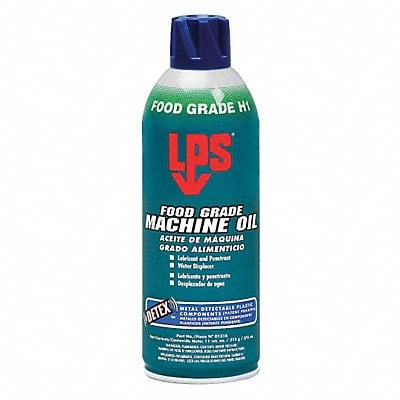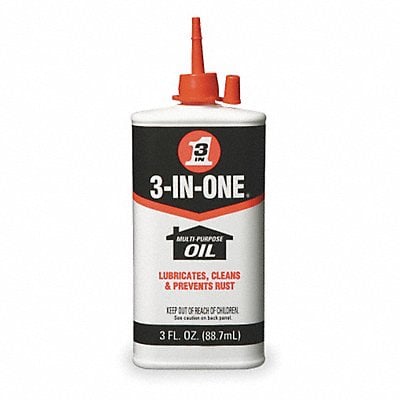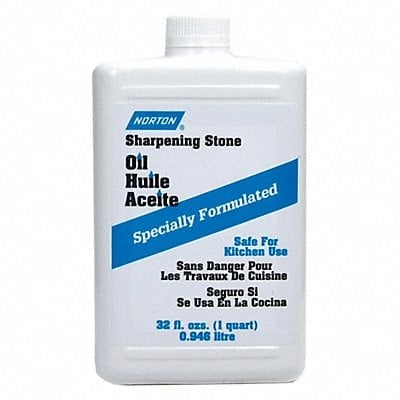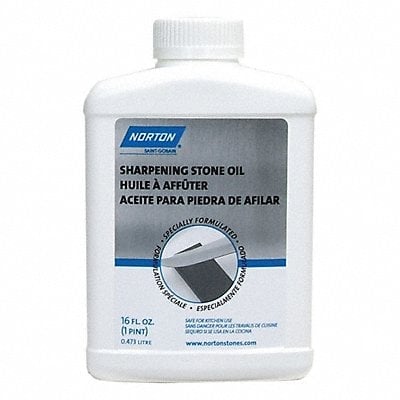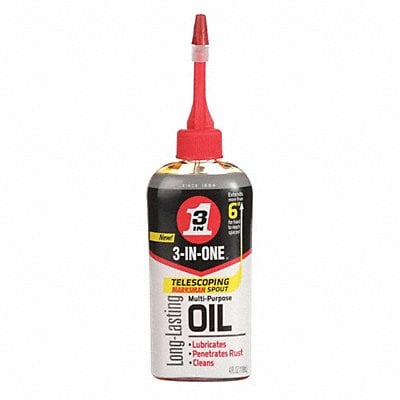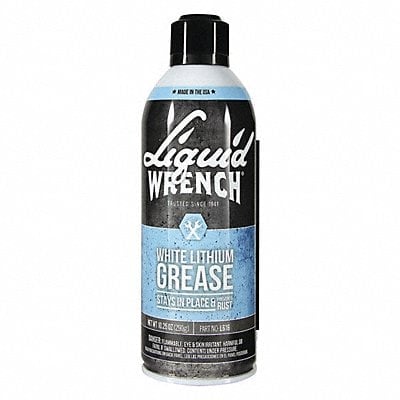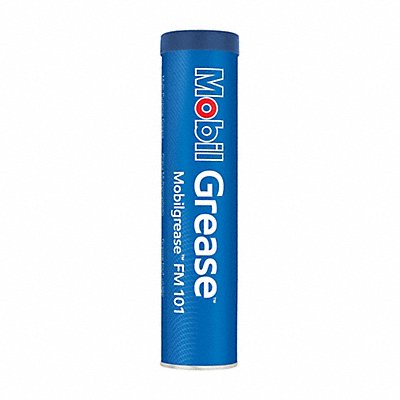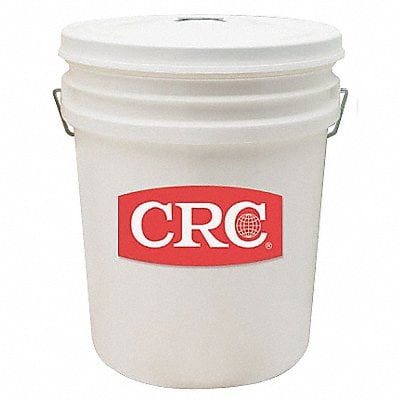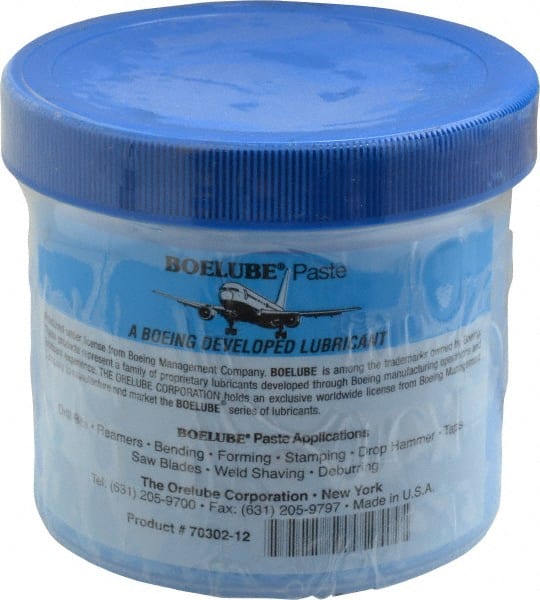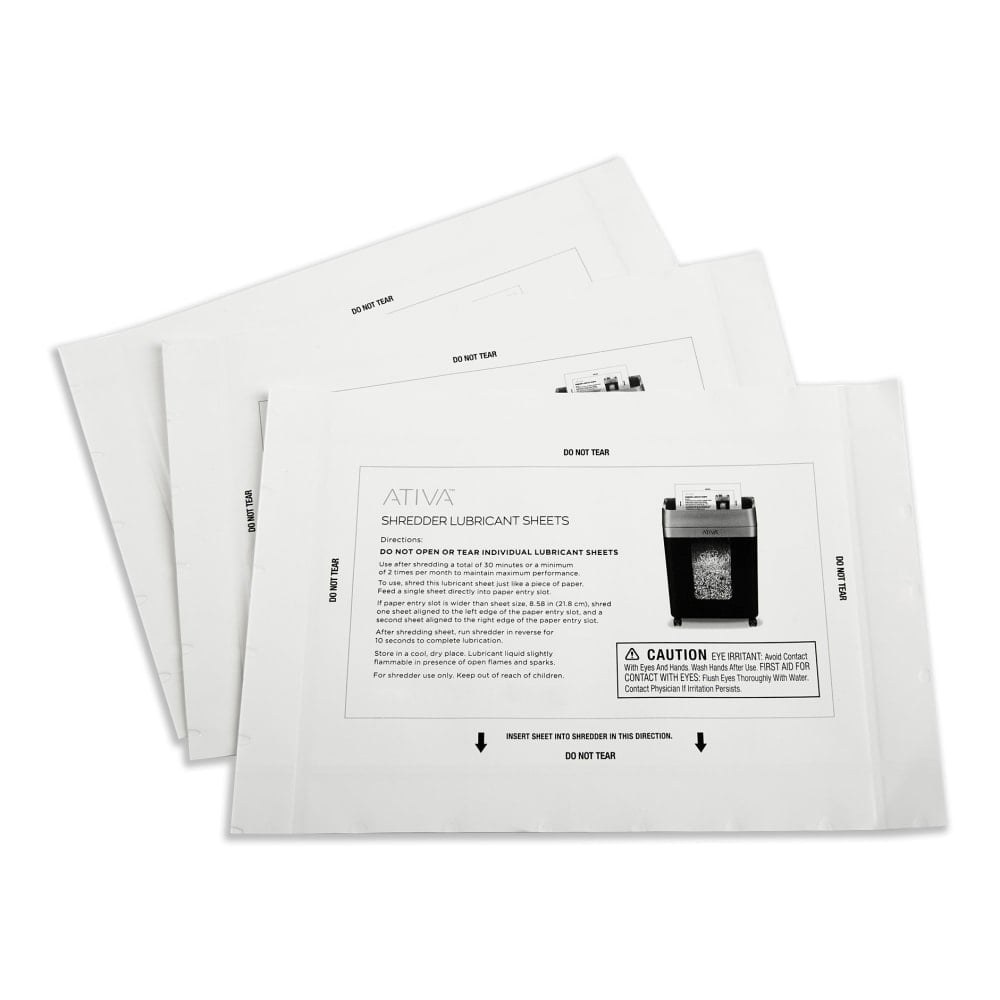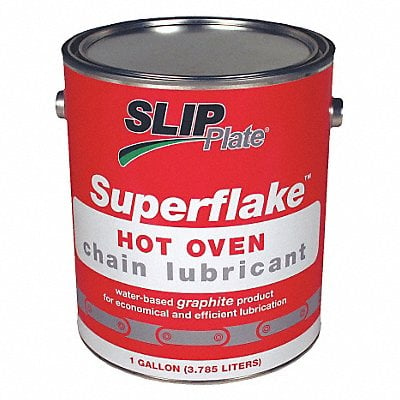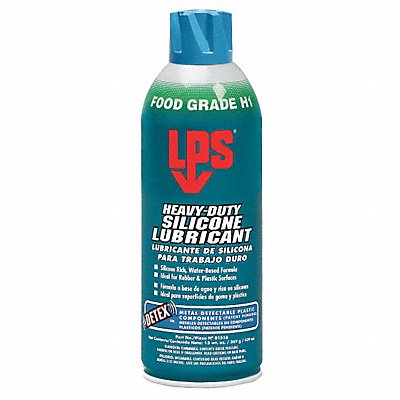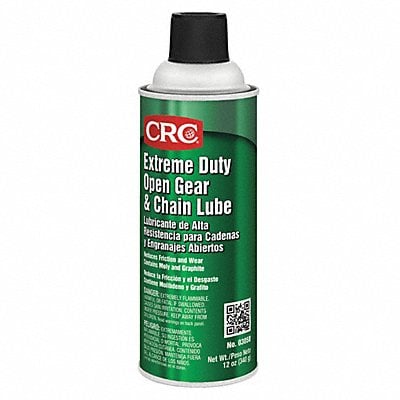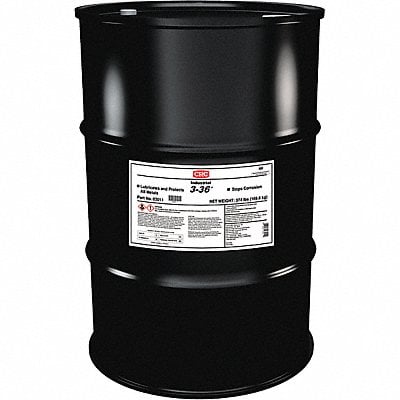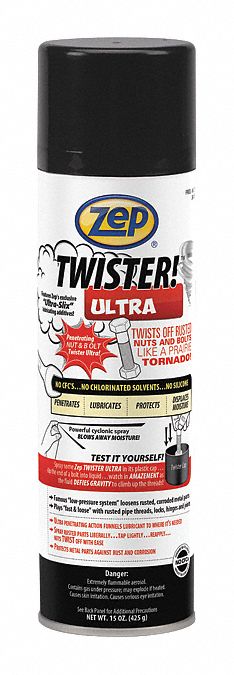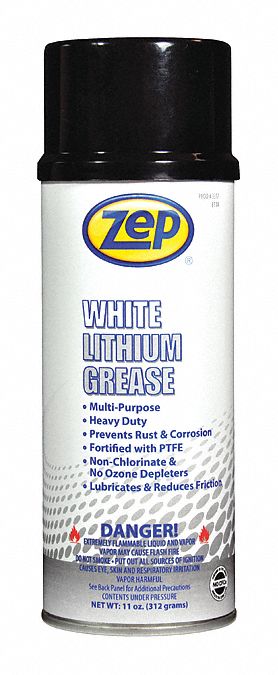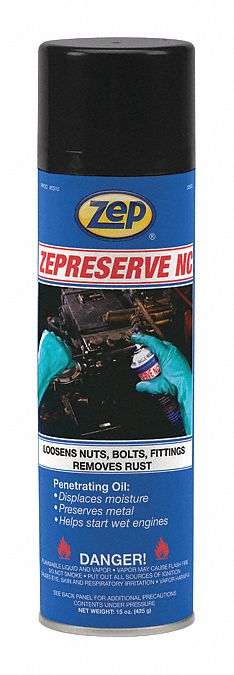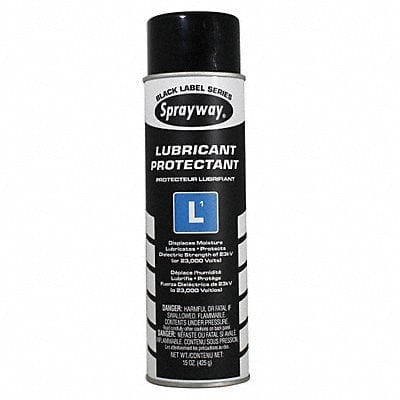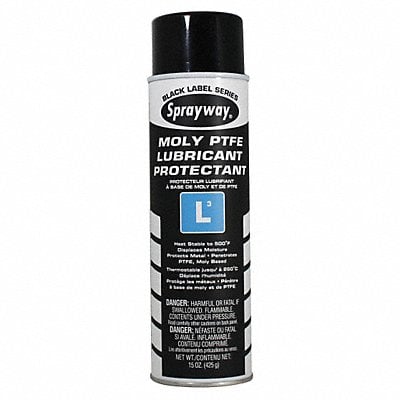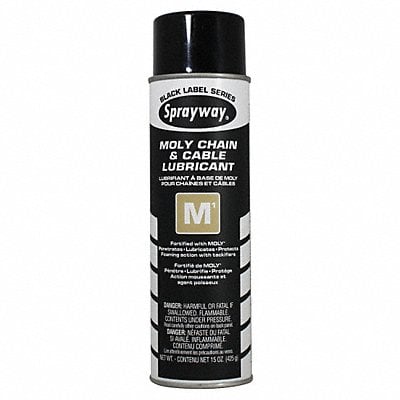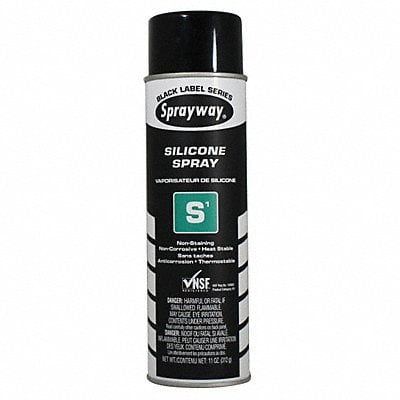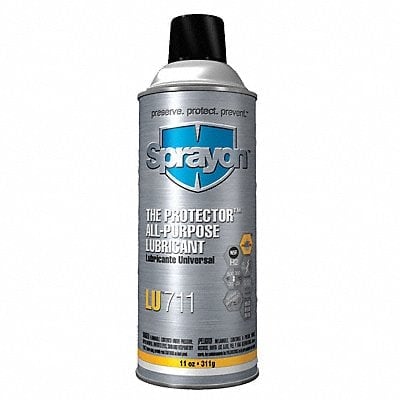Optimizing Machinery Performance with Premium Lubricants

Overview:
When maintenance and machinery upkeep comes to mind, the choice of lubricants can make all the difference. Whether you're tending to your garage door, fine-tuning industrial equipment, or maintaining automotive machinery, having the right lubricant is crucial. At GoVets, we understand the importance of superior lubrication, which is why we offer a comprehensive range of premium lubricants to meet every need.
Our guide explores several aspects of lubrication, including key products such as garage door lubricants, graphite lubricants, anti-seize lubricants, silicone spray lubricants, and more. We provide insights into the benefits of each type of lubricant, their applications across various industries, and expert recommendations for optimizing performance.
Discover the power of Tri-Flow lubricants, CRC lubricants, Loctite Lubricants, Vibra-Tite Lubricants and more. From brake lubricants to industrial lubricants, we cover it all, ensuring you have access to the best-in-class products for your maintenance needs. Dive deep into the world of lubrication with our informative guides, FAQs, and product recommendations, designed to empower you with the knowledge to make informed decisions.
Whether you're a seasoned professional or a DIY enthusiast, our guide caters to all levels of expertise, offering valuable insights and tips for enhancing machinery performance. Join us as we explore the intricate world of lubrication and unlock the secrets to smoother operation, extended equipment life, and optimized performance.
Stay tuned to our blog for regular updates, industry trends, and exclusive offers on premium lubricants. With GoVets as your trusted partner in maintenance, you can elevate your lubrication game and ensure your machinery operates at its peak performance for years to come.
Explore our blog today and embark on a journey to lubrication excellence with GoVets.
Table of Contents
- Lubricants
- Anti-Seize Lubricants
- Chain & Cable Lubricants
- Grease
- Machine Oil
- Multipurpose Greases
- Multipurpose Lubricants & Penetrants
The Secrets of Lubricants: Your Guide to Enhancing Performance and Maintenance
1. Lubricants
Lets first take a general look at lubricants in general before diving into other specific areas in the following sections. Lubricants are substances that reduce friction between moving surfaces. They come in various forms, including oils, greases, and dry lubricants, and are essential for maintaining smooth operation and prolonging the life of machinery and equipment.
Top Applications:
- Machinery and equipment: Bearings, gears, slides, and hinges.
- Automotive: Engine components, transmissions, and chassis parts.
- Industrial applications: Conveyor belts, hydraulic systems, and pneumatic tools.
- Household items: Door hinges, locks, and sewing machines.
- Recreational equipment: Bicycles, skateboards, and rollerblades.
Top Reasons to Use Lubricants:
- Reduces friction: Lubricants create a thin film between surfaces, minimizing wear and heat generation.
- Prevents corrosion: Protects metal surfaces from rust and oxidation in humid or corrosive environments.
- Improves efficiency: Smooth operation reduces energy consumption and enhances performance.
- Extends equipment life: Regular lubrication prevents premature wear and prolongs the lifespan of machinery.
- Versatility: Lubricants are available in various formulations to suit different applications and operating conditions.
Top FAQs and Answers:
1. Q: Can I use any lubricant for my machinery?
A: It's essential to use the correct lubricant for your specific application to ensure optimal performance and longevity.
2. Q: How often should I lubricate equipment?
A: Frequency of lubrication depends on factors such as operating conditions, load, and manufacturer recommendations.
3. Q: What's the difference between oil and grease lubricants?
A: Oils are liquid lubricants, while greases are semisolid and contain a thickening agent to stay in place.
4. Q: Can I mix different types of lubricants?
A: Mixing lubricants can lead to compatibility issues and reduced effectiveness, so it's best to stick with one type for each application.
5. Q: How do I apply lubricant to my equipment?
A: Follow manufacturer instructions for proper lubrication procedures, including quantity and application method.
Product Recommendations:
-
Anti-Seize TechnologySpecial Price $29.99This product is sold in increments of 1
-
Renewable LubricantsSpecial Price $100.79This product is sold in increments of 1
-
Renewable LubricantsSpecial Price $27.79This product is sold in increments of 1
-
Renewable LubricantsSpecial Price $513.99This product is sold in increments of 1
-
Renewable LubricantsSpecial Price $25.49This product is sold in increments of 1
-
Renewable LubricantsSpecial Price $725.49This product is sold in increments of 1
-
SprayonSpecial Price $18.99This product is sold in increments of 1
-
BlasterSpecial Price $9.29This product is sold in increments of 1
2. Anti-Seize Lubricants
Anti-seize lubricants are specially designed to prevent seizing, galling, and corrosion of metal parts. These high-performance lubricants create a barrier between metal surfaces, reducing friction and wear.
Top Applications:
- Automotive: Bolts, studs, exhaust systems, and brake components.
- Industrial machinery: Bearings, fasteners, valves, and fittings.
- Marine equipment: Propeller shafts, winches, and rigging hardware.
- Electrical connections: Prevents oxidation and corrosion on terminals and connectors.
- Plumbing fixtures: Faucets, pipes, and fittings.
Top Reasons to Use Anti-Seize Lubricants:
- Prevents corrosion: Protects metal surfaces from rust and oxidation in harsh environments.
- Reduces friction: Minimizes wear and tear on moving parts for extended equipment life.
- Facilitates disassembly: Makes it easier to remove fasteners and components without damage.
- Improves performance: Ensures smooth operation of machinery and equipment.
- Cost-effective maintenance: Prevents costly repairs and downtime due to seized components.
Top FAQs and Answers:
1. Q: Can anti-seize lubricants be used on stainless steel?
A: Yes, many formulations are compatible with stainless steel and other metals.
2. Q: How do I apply anti-seize lubricant to threaded fasteners?
A: Apply a thin, even coat to the threads using a brush or applicator.
3. Q: Can anti-seize lubricants withstand high temperatures?
A: Yes, many products are heat-resistant and can handle temperatures up to 2,000°F or more.
4. Q: Is anti-seize lubricant compatible with rubber seals and gaskets?
A: Some formulations may affect rubber, so it's best to check compatibility before use.
5. Q: Can anti-seize lubricants be used on electrical connections?
A: Yes, but be sure to choose a product specifically designed for electrical applications.
Product Recommendations:
-
Jet-LubeSpecial Price $53.29 Regular Price $107.12This product is sold in increments of 1
-
CrcSpecial Price $33.29 Regular Price $52.05This product is sold in increments of 1
-
LoctiteSpecial Price $31.99 Regular Price $51.44This product is sold in increments of 1
-
Jet-LubeSpecial Price $29.49 Regular Price $49.3This product is sold in increments of 1
-
Value CollectionSpecial Price $17.99 Regular Price $24.17This product is sold in increments of 1
-
Value CollectionSpecial Price $35.49 Regular Price $50.47This product is sold in increments of 1
-
LoctiteSpecial Price $11.79 Regular Price $14.03This product is sold in increments of 1
-
GenericSpecial Price $14.79 Regular Price $16.08This product is sold in increments of 1
3. Chain & Cable Lubricants
Chain and cable lubricants are formulated to penetrate deep into the links and strands of chains and cables, reducing friction and wear. These lubricants provide long-lasting protection against rust and corrosion, extending the life of equipment.
Top Applications:
- Industrial machinery: Conveyor chains, drive chains, and hoists.
- Automotive: Motorcycle chains, bicycle chains, and garage door openers.
- Marine equipment: Anchor chains, winches, and rigging.
- Agricultural equipment: Tractor chains, combine harvesters, and balers.
- Recreational vehicles: ATV chains, snowmobiles, and jet skis.
Top Reasons to Use Chain & Cable Lubricants:
- Extends chain life: Reduces wear and friction on moving parts for smoother operation.
- Prevents rust and corrosion: Provides a protective barrier against moisture and contaminants.
- Improves efficiency: Reduces energy consumption and maintenance costs.
- Enhances safety: Ensures reliable performance of critical equipment.
- Simplifies maintenance: Easy-to-apply formulas minimize downtime for lubrication tasks.
Top FAQs and Answers:
Q: How often should I lubricate chains and cables?
A: It depends on usage and environmental conditions, but a general guideline is every 100-200 hours of operation.
Q: Can chain lubricants be used on both roller chains and O-ring chains?
A: Yes, many lubricants are compatible with various types of chains.
Q: Are chain lubricants safe for use on food processing equipment?
A: Always choose food-grade lubricants for equipment that comes into contact with food.
Q: Can chain lubricants be applied while equipment is in operation?
A: It's best to lubricate chains when the equipment is not in use to ensure even distribution and proper coverage.
Q: Can chain lubricants withstand extreme temperatures?
A: Many formulations are designed to perform in a wide range of temperatures, from freezing cold to scorching heat.
Product Recommendations:
-
Pro-SourceSpecial Price $8.29 Regular Price $10.61This product is sold in increments of 1
-
ZepSpecial Price $163.49 Regular Price $216.5This product is sold in increments of 1
-
SprayonSpecial Price $13.79 Regular Price $28.6This product is sold in increments of 1
-
CastrolSpecial Price $384.29This product is sold in increments of 1
-
CastrolSpecial Price $577.79This product is sold in increments of 1
-
CastrolSpecial Price $760.29 Regular Price $1260.27This product is sold in increments of 1
-
CastrolSpecial Price $750.99 Regular Price $870.03This product is sold in increments of 1
-
CastrolSpecial Price $736.99This product is sold in increments of 1
4. Grease
Grease is a semisolid lubricant composed of oil and a thickening agent, usually a soap or a complex metal soap. It's designed to stay in place and provide long-lasting lubrication, particularly in areas where oil would drip away or be difficult to apply.
Top Applications:
- Automotive: Wheel bearings, chassis components, and universal joints.
- Industrial machinery: Bearings, gears, and slides.
- Marine equipment: Stern tubes, propeller shafts, and winches.
- Agricultural equipment: Tractor implements, bushings, and pivot points.
- Construction equipment: Excavator buckets, crane hooks, and roller bearings.
Top Reasons to Use Grease:
- Superior lubrication: Grease adheres to surfaces, providing continuous lubrication over time.
- Seals out contaminants: Forms a protective barrier against moisture, dust, and debris.
- Extends equipment life: Reduces friction and wear on moving parts, preventing premature failure.
- High-temperature stability: Many greases can withstand extreme temperatures without melting or breaking down.
- Easy to apply: Grease can be applied manually or with a grease gun, making it suitable for a wide range of applications.
Top FAQs and Answers:
1. Q: How often should I grease bearings and other components?
A: It depends on usage and manufacturer recommendations, but typically every 3,000 to 5,000 miles for automotive applications.
2. Q: Can I mix different types of grease?
A: It's generally not recommended, as different greases may have incompatible additives or thickening agents.
3. Q: Can grease be used as a sealant for gaskets and O-rings?
A: No, grease is not a substitute for proper gasket or O-ring seals.
4. Q: Can I over-grease bearings or other components?
A: Yes, over-greasing can cause excess heat buildup and lead to premature failure of seals and bearings.
5. Q: How do I choose the right grease for my application?
A: Consider factors such as operating temperature, load, speed, and compatibility with other lubricants.
Product Recommendations:
-
LincolnSpecial Price $10.29 Regular Price $14.19This product is sold in increments of 1
-
LubriplateSpecial Price $18.49 Regular Price $21.97This product is sold in increments of 1
-
LubriplateSpecial Price $13.49 Regular Price $18.5This product is sold in increments of 1
-
Super LubeSpecial Price $20.49 Regular Price $28.05This product is sold in increments of 1
-
Renewable LubricantsSpecial Price $50.79 Regular Price $76.7This product is sold in increments of 1
-
LumaxSpecial Price $34.79 Regular Price $41.95This product is sold in increments of 1
-
AlemiteSpecial Price $173.79 Regular Price $242.31This product is sold in increments of 1
-
WestwardSpecial Price $273.79This product is sold in increments of 1
5. Machine Oil
Machine oil, also known as lubricating oil, is a type of liquid lubricant used to reduce friction and wear between moving parts in machinery and equipment. It's available in various viscosities and formulations to suit different applications and operating conditions.
Top Applications:
- Industrial machinery: Bearings, gears, hydraulic systems, and compressors.
- Automotive: Engine components, transmissions, and power steering systems.
- Metalworking: Cutting tools, lathes, and milling machines.
- Woodworking: Table saws, planers, and jointers.
- Household items: Sewing machines, fans, and small appliances.
Top Reasons to Use this Product:
- Lubrication: Machine oil forms a protective film between metal surfaces, reducing friction and wear.
- Cooling: Oil absorbs and dissipates heat generated by moving parts, preventing overheating.
- Corrosion protection: Oil coats metal surfaces, preventing rust and oxidation in humid or corrosive environments.
- Cleaning: Oil helps flush away dirt, debris, and contaminants from moving parts, keeping them clean and functioning properly.
- Versatility: Machine oil is suitable for a wide range of applications, making it a must-have for maintenance tasks.
Top FAQs and Answers:
1. Q: How do I choose the right machine oil for my equipment?
A: Consider factors such as operating temperature, load, speed, and manufacturer recommendations.
2. Q: Can I use machine oil as a lubricant for bicycle chains?
A: Yes, machine oil can be used as a bicycle chain lubricant, but specialized bicycle chain lubricants may offer better performance and durability.
3. Q: Is machine oil safe for use on food processing equipment?
A: It depends on the formulation. Food-grade machine oils are available for applications where incidental contact with food may occur.
4. Q: How often should I change machine oil in my equipment?
A: Follow manufacturer recommendations for oil change intervals, typically based on hours of operation or calendar time.
5. Q: Can machine oil be recycled or disposed of safely?
A: Yes, used machine oil can often be recycled or disposed of at designated collection centers or through authorized recycling facilities.
Product Recommendations:
-
CrcSpecial Price $21.29This product is sold in increments of 1
-
Nu-CalgonSpecial Price $31.49This product is sold in increments of 1
-
LpsSpecial Price $20.99This product is sold in increments of 1
-
3-In-OneSpecial Price $9.29This product is sold in increments of 1
-
NortonSpecial Price $42.29This product is sold in increments of 1
-
NortonSpecial Price $23.79This product is sold in increments of 1
-
3-In-OneSpecial Price $7.79This product is sold in increments of 1
6. Multipurpose Greases
Overview: Multipurpose greases are versatile lubricants suitable for a wide range of applications in various industries. These greases offer excellent adhesion, water resistance, and thermal stability, making them ideal for general-purpose lubrication tasks.
Top Applications:
- Automotive: Wheel bearings, chassis components, and suspension systems.
- Industrial machinery: Bearings, gears, and slides.
- Marine equipment: Propeller shafts, winches, and hinges.
- Agricultural equipment: Tractor implements, bushings, and pivot points.
- Recreational vehicles: ATV suspension, trailer bearings, and boat trailers.
Top Reasons to Use Multi-Purpose Greases:
- Versatility: Multipurpose greases can be used in a wide range of applications, reducing the need for multiple lubricants.
- Long-lasting lubrication: Greases adhere to surfaces, providing continuous lubrication even under heavy loads and extreme conditions.
- Water resistance: Greases form a protective barrier against moisture, preventing rust and corrosion.
- High temperature stability: Many multipurpose greases can withstand temperatures ranging from freezing cold to scorching heat.
- Cost-effectiveness: Using one grease for multiple applications simplifies inventory management and reduces costs.
Top FAQs and Answers:
1. Q: Can I use multipurpose grease on plastic components?
A: It's best to check compatibility with plastic materials, as some greases may cause swelling or degradation.
2. Q: How often should I grease bearings and other components with multipurpose grease?
A: Follow manufacturer recommendations for lubrication intervals based on usage and operating conditions.
3. Q: Can I mix different brands of multipurpose grease?
A: It's generally not recommended, as different formulations may have incompatible additives or thickening agents.
4. Q: Can multipurpose grease be used in high-speed applications?
A: Some greases are specifically designed for high-speed applications, so be sure to choose the appropriate formulation.
5. Q: Can multipurpose grease be applied manually or with a grease gun?
A: Yes, greases can be applied using various methods, including manual application with a brush or spatula or using a grease gun for precision application.
Product Recommendations:
-
Super LubeSpecial Price $19.99This product is sold in increments of 1
-
Jet-LubeSpecial Price $25.99This product is sold in increments of 1
-
Govets DirectSpecial Price $14.49This product is sold in increments of 6
-
Liquid WrenchSpecial Price $11.29This product is sold in increments of 1
-
MobilSpecial Price $15.29This product is sold in increments of 1
-
CrcSpecial Price $536.49This product is sold in increments of 1
-
Anti-Seize TechnologySpecial Price $36.99This product is sold in increments of 1
-
Anti-Seize TechnologySpecial Price $35.29This product is sold in increments of 1
7. Multipurpose Lubricants & Penetrants
Multipurpose lubricants and penetrants are versatile solutions designed to lubricate, protect, and penetrate rusted or corroded parts. These products are invaluable for maintenance tasks in automotive, industrial, marine, and household applications.
Top Applications:
- Automotive: Loosening rusted bolts, lubricating hinges and locks, and protecting electrical connections.
- Industrial maintenance: Lubricating machinery, freeing seized parts, and preventing corrosion on metal surfaces.
- Marine maintenance: Penetrating and lubricating marine hardware, preventing rust on boat trailers, and protecting electrical contacts.
- Household maintenance: Loosening stuck mechanisms, lubricating door hinges, and preventing corrosion on outdoor furniture.
- DIY projects: Lubricating tools, protecting garden equipment, and maintaining household appliances.
Top Reasons to Use this Product:
- Versatility: Multipurpose lubricants and penetrants serve multiple functions, reducing the need for multiple products.
- Penetrating power: These products can break through rust, corrosion, and debris, freeing seized or stuck parts.
- Lubrication: Once applied, multipurpose lubricants provide long-lasting lubrication for smooth operation of moving parts.
- Corrosion protection: By displacing moisture and forming a protective barrier, these products prevent rust and corrosion.
- Ease of use: Spray application makes it easy to reach inaccessible areas and apply the product precisely where needed.
Top FAQs and Answers:
1. Q: Can multipurpose lubricants be used as cutting fluids for metalworking?
A: Yes, many lubricants have properties that make them suitable for use as cutting fluids in metalworking applications.
2. Q: Are multipurpose lubricants safe for use on rubber seals and gaskets?
A: It depends on the formulation. Some lubricants may affect rubber, so it's best to check compatibility before use.
3. Q: Can multipurpose lubricants be used on electrical connections?
A: Yes, many formulations are safe for use on electrical contacts, switches, and connectors.
4. Q: How long does it take for a multipurpose penetrant to work on rusted or corroded parts?
A: It depends on the severity of the corrosion and the product used, but some penetrants can work in as little as a few minutes.
5. Q: Can multipurpose lubricants be used as a cleaner for removing grease and grime?
A: While some lubricants have degreasing properties, they may not be as effective as dedicated cleaners for heavy-duty cleaning tasks.
Product Recommendations:
-
WD-40Special Price $44.99 Regular Price $67.25This product is sold in increments of 1
-
BoelubeSpecial Price $30.49 Regular Price $34.6This product is sold in increments of 1
-
BoelubeSpecial Price $28.79 Regular Price $34.62This product is sold in increments of 1
-
WD-40Special Price $10.29 Regular Price $16.4This product is sold in increments of 1
-
Snap-OnSpecial Price $167.49 Regular Price $229.15This product is sold in increments of 1
-
Snap-OnSpecial Price $186.79 Regular Price $255.91This product is sold in increments of 1
-
Snap-OnSpecial Price $2715.79 Regular Price $3766.4This product is sold in increments of 1
-
Snap-OnSpecial Price $967.79 Regular Price $1336.41This product is sold in increments of 1
Conclusion: Enhance Performance and Maintenance with Premium Lubricants
Lubricants play a vital role in ensuring smooth operation, preventing wear and tear, and prolonging the lifespan of machinery and equipment. Whether you're a professional maintenance technician, an automotive enthusiast, or a DIY homeowner, choosing the right lubricant for the job is essential.
From general lubricants to specialized anti-seize lubricants and multipurpose greases, there's a wide range of products available to suit your specific needs. By understanding the properties, applications, and benefits of each type of lubricant, you can make informed decisions to keep your equipment running smoothly and efficiently.
Remember to follow manufacturer recommendations for lubrication intervals, application methods, and compatibility with materials. Proper lubrication not only reduces friction and wear but also helps prevent costly repairs and downtime.
At GoVets, we offer a comprehensive selection of premium lubricants from trusted brands like Tri-Flow, ensuring you have access to the highest quality products for your maintenance needs. With our easy-to-use online platform and nationwide shipping, it's never been easier to stock up on essential lubricants for your home, business, or industrial facility.
Explore our extensive range of lubricants today and experience the difference that premium-quality products can make in optimizing performance and extending the life of your equipment.
Remember, when it comes to lubricants, trust GoVets for reliability, quality, and exceptional customer service.
Shop now and unlock the power of premium lubricants with GoVets!
Explore Our Range of Lubricants
-
Jet-LubeSpecial Price $53.29 Regular Price $107.12This product is sold in increments of 1
-
CrcSpecial Price $33.29 Regular Price $52.05This product is sold in increments of 1
-
Jet-LubeSpecial Price $29.49 Regular Price $49.3This product is sold in increments of 1
-
Office DepotSpecial Price $25.49 Regular Price $55.79This product is sold in increments of 1
-
LoctiteSpecial Price $31.99 Regular Price $51.44This product is sold in increments of 1
-
BoelubeSpecial Price $30.49 Regular Price $34.6This product is sold in increments of 1
-
BoelubeSpecial Price $28.79 Regular Price $34.62This product is sold in increments of 1
-
WD-40Special Price $44.99 Regular Price $67.25This product is sold in increments of 1
-
WD-40Special Price $10.29 Regular Price $16.4This product is sold in increments of 1
-
Pro-SourceSpecial Price $8.29 Regular Price $10.61This product is sold in increments of 1
-
Bunting BearingSpecial Price $8.49 Regular Price $13.58This product is sold in increments of 1
-
Accu-LubeSpecial Price $25.49 Regular Price $32.72This product is sold in increments of 1
-
Slip PlateSpecial Price $99.29This product is sold in increments of 1
-
Anti-Seize TechnologySpecial Price $29.99This product is sold in increments of 1
-
Renewable LubricantsSpecial Price $100.79This product is sold in increments of 1
-
Renewable LubricantsSpecial Price $27.79This product is sold in increments of 1
-
Renewable LubricantsSpecial Price $513.99This product is sold in increments of 1
-
Renewable LubricantsSpecial Price $25.49This product is sold in increments of 1
-
Renewable LubricantsSpecial Price $747.79This product is sold in increments of 1
-
Renewable LubricantsSpecial Price $725.49This product is sold in increments of 1
-
LpsSpecial Price $29.29This product is sold in increments of 1
-
SprayonSpecial Price $18.99This product is sold in increments of 1
-
BlasterSpecial Price $9.29This product is sold in increments of 1
-
LpsSpecial Price $20.79This product is sold in increments of 1
-
CrcSpecial Price $31.29This product is sold in increments of 1
-
CrcSpecial Price $29.79This product is sold in increments of 1
-
CrcSpecial Price $3823.29This product is sold in increments of 1
-
ZepSpecial Price $322.49This product is sold in increments of 1
-
ZepSpecial Price $422.79This product is sold in increments of 1
-
ZepSpecial Price $266This product is sold in increments of 1
-
ZepSpecial Price $163.99This product is sold in increments of 1
-
ZepSpecial Price $271.99This product is sold in increments of 1
-
Super LubeSpecial Price $19.29This product is sold in increments of 1
-
ZepSpecial Price $312.99This product is sold in increments of 1
-
ZepSpecial Price $306.49This product is sold in increments of 1
-
ZepSpecial Price $285.29This product is sold in increments of 1
-
ZepSpecial Price $280.29This product is sold in increments of 1
-
ZepSpecial Price $270.49This product is sold in increments of 1
-
ZepSpecial Price $3108.79This product is sold in increments of 1
-
ZepSpecial Price $1322.79This product is sold in increments of 1
-
ZepSpecial Price $362.79This product is sold in increments of 1
-
ZepSpecial Price $3412.49This product is sold in increments of 1
-
ZepSpecial Price $730.99This product is sold in increments of 1
-
SpraywaySpecial Price $12.79This product is sold in increments of 1
-
SpraywaySpecial Price $13.99This product is sold in increments of 1
-
SpraywaySpecial Price $14.49This product is sold in increments of 1
-
SpraywaySpecial Price $9.79This product is sold in increments of 1
-
EchoSpecial Price $42.29This product is sold in increments of 1
-
EchoSpecial Price $12.79This product is sold in increments of 1
-
LoctiteSpecial Price $732.29This product is sold in increments of 1
-
SprayonSpecial Price $12.99This product is sold in increments of 1
-
SprayonSpecial Price $16.99This product is sold in increments of 1
-
SprayonSpecial Price $479.29This product is sold in increments of 1
-
SprayonSpecial Price $371.99This product is sold in increments of 1
-
SprayonSpecial Price $2487.49This product is sold in increments of 1
-
SprayonSpecial Price $331.49This product is sold in increments of 1
- Veteran Spotlight
- GoVets Solutions
- Buying Guides & Projects
- Shopping Trends
- Prime Contractor Resources
- Business & Entrepreneur Resources
- GoVets Giving
- Online Security and Shopping Safety
- GoVets Top Selling Products
- Veteran Resources
- Product Spotlights
- Technology Updates
- GoVets Medallion Updates
- Government Updates
- GoVets Capabilities
- Press Releases
- Promotion Updates
- Industry Trends


